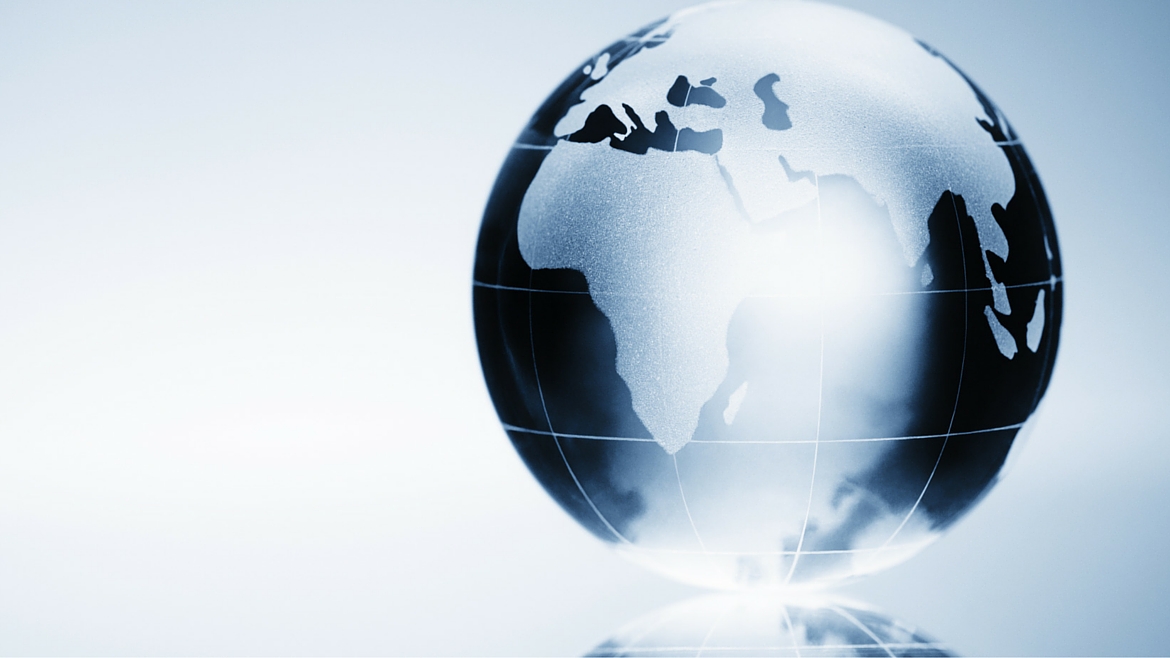It’s hard to overstate the importance of the climate summit in Paris that is taking place between November 30th and December 11th. As representatives from more than 190 countries have gathered in Paris, hopes are high for a universal, legally binding agreement on emissions reductions—the first ever. There's almost unanimous agreement that the most probable alternative—a rise in global temperatures of more than two degrees—is simply too terrible to comprehend. Nevertheless, it’s unlikely that the 12 days of negotiations will be smooth sailing, with the need to resolve a number of thorny details around financing and individual country commitments.
Human security—or the condition that exists when people have the freedom and capacity to live with dignity—is another issue that will be hard to ignore in Paris. The latest assessment report from the Intergovernmental Panel on Climate Change (IPCC), the recognised authority on climate change, included a chapter on human security, highlighting for the first time the threat posed by a changing global climate to, among other things, political stability. The ongoing, devastating refugee crisis across Europe has thrown this threat into sharp focus; while it’s certainly not the sole cause, there is now widespread agreement that one of the key triggers of the conflict in Syria was a climate change-driven drought in the region during 2006-10.
Climate change threatens human security in a multitude of ways. Perhaps the most obvious is the direct displacement of communities as a result of extreme weather events. Phenomena such as floods, droughts and hurricanes are becoming more frequent and more intense as a result of global warming. Over the longer term rising sea levels threaten vulnerable populations, with IPCC estimates predicting the displacement of almost 190m people, or around 2.4% of the global population.
As well as making vast stretches of land uninhabitable, denying people basic resources like shelter and food, climate change and extreme weather events can undermine livelihoods in less obvious, but equally devastating, ways. The ability to access food, for example, is influenced by food prices, themselves affected by climate change. Food price spikes in Zambia, for example, have been linked to reduced agricultural productivity as a result of climate variability. The human security impacts of spikes like this are often mediated through complex social and economic channels operating across a range of scales: in Zambia, price hikes were shown to erode individual real urban incomes, whereas estimates for Ethiopia suggest agriculture losses could reduce national GDP by almost 10%.
Including cultural perspectives in the climate-change discourse
Just as important to human security, and also susceptible to climate change, are the more fluid concepts of culture and identity. The displacement of indigenous peoples, as well as the negative cultural and well-being impacts this leads to, are one of the most obvious and most heavily researched examples. There’s also a growing recognition of the various feedback loops shaping this relationship between climate change and culture: studies of Borana pastoralists in Southern Ethiopia, for example, document how loss of indigenous cultural practices can result in progressive land degradation, erosion of social structures and poverty, further weakening the resilience of the community to a changing climate and increasing insecurity.
All of this has a number of implications for policymakers: decision-making around both climate change adaptation and mitigation that is inclusive of cultural perspectives can help to increase security; it’s no coincidence that this year’s World Disasters Report focuses on local actors and the role of community-led participation in disaster risk management and preparedness.
Policies will only be fully sensitive to human-security issues, however, if they successfully account for the differences within and between communities; what works for one group won’t necessarily work for others. For those populations already socially marginalised, for example, the human-security impacts of climate change are likely to be enhanced, leading to a cycle of negative feedback. There’s evidence of this in conflict situations where capacity to adapt to climate change is eroded as conflicts persist, further increasing the affected population’s vulnerability to climate change. Migration can be an adaptation strategy in itself, but not everyone has this option; those most vulnerable to the impacts of climate change often have the least capability to migrate or end up in high risk areas within their new destinations; migrants in Dakar, Senegal, for example, often live in areas more prone to flooding than those where longer-term residents live.
What’s more, policymaking can actually be an influence on human security. Effective natural resource management—a climate change adaptation policy in itself—can help both to divert conflict and to broker peace in conflict situations. On the flipside, in some cases, adaptation interventions actually act to undermine human security: efforts to ensure compliance to the Reducing Emissions from Deforestation and Forest Degradation (REDD) scheme in Tanzania, for example, have placed communities in conflict with conservationists and governments.
The recent and ongoing events across Europe have thrown human security firmly into the spotlight. What does this mean for COP21? Greater impetus to reach an agreement, and quickly, certainly, but limiting greenhouse-gas emissions won’t automatically reduce conflict or stem the flow of refugees; nor is human security about conflict and migration alone. It’s critical that we use the landmark conference to fully discuss the ways in which a changing climate and the many facets of human security are interrelated—and the longer term policy implications of these relationships. After all, a universal climate agreement will only be meaningful if it fully accounts for the humans it’s meant to be protecting.
The views and opinions expressed in this article are those of the authors and do not necessarily reflect the views of The Economist Intelligence Unit Limited (EIU) or any other member of The Economist Group. The Economist Group (including the EIU) cannot accept any responsibility or liability for reliance by any person on this article or any of the information, opinions or conclusions set out in the article.




